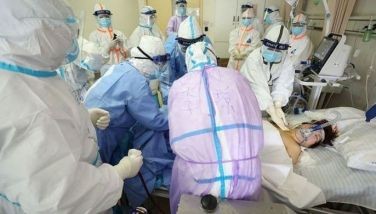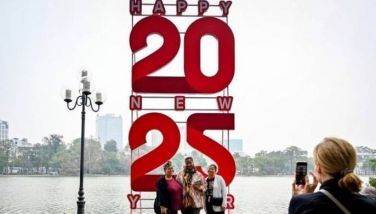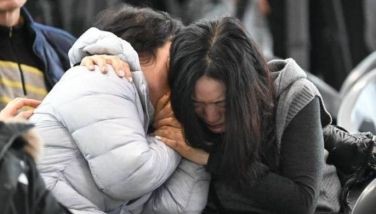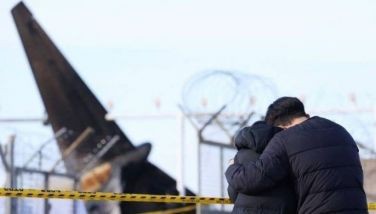Rich nations have cornered half of future COVID-19 vaccine supply: Oxfam
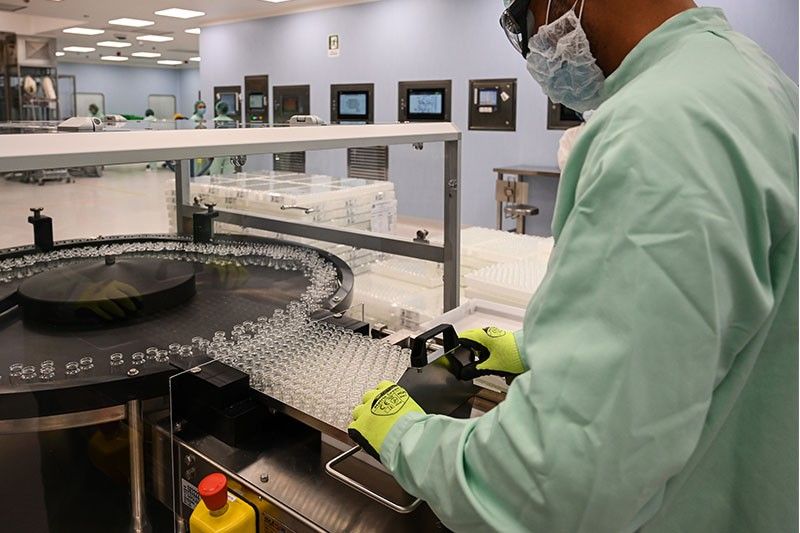
WASHINGTON, United States — A group of wealthy nations representing 13 percent of the global population have already bought up more than half of the promised doses of future Covid-19 vaccines, according to a report by Oxfam on Wednesday.
The non-governmental organization analyzed deals struck by pharmaceuticals and vaccine producers for the five leading vaccine candidates currently in late-stage trials, based on data collected by the analytics company Airfinity.
"Access to a life-saving vaccine shouldn't depend on where you live or how much money you have," said Robert Silverman of Oxfam America.
"The development and approval of a safe and effective vaccine is crucial, but equally important is making sure the vaccines are available and affordable to everyone. Covid-19 anywhere is Covid-19 everywhere."
The five vaccines analyzed were from AstraZeneca, Gamaleya/Sputnik, Moderna, Pfizer and Sinovac.
Oxfam calculated the combined production capacity of these five vaccine candidates at 5.9 billion doses, enough for three billion people given that all five future vaccines will or are highly likely to require two doses.
Supply deals have so far been agreed for 5.3 billion doses, of which 2.7 billion (51 percent) have been bought by developed countries, territories and regions, including the US, UK, European Union, Australia, Hong Kong and Macau, Japan, Switzerland and Israel.
The remaining 2.6 billion doses have been bought by or promised to developing countries including India, Bangladesh, China, Brazil, Indonesia and Mexico, among others.
The non-profit added that one of the leading candidates, developed by Moderna, has received $2.5 billion in committed taxpayers' money, but has said it intends to make a profit and has sold the options for all its supply to rich nations.
Oxfam and other organizations are therefore calling for a "people's vaccine" free of charge, distributed fairly based on need.
"This will only be possible if pharmaceutical corporations allow vaccines to be produced as widely as possible by freely sharing their knowledge free of patents, instead of protecting their monopolies and selling to the highest bidder," Oxfam said.
It added that the estimated cost of providing a vaccine for everyone on Earth was less than one percent of the projected cost of Covid-19 to the global economy.
Pharma giants Sanofi and GSK said on July 29, 2020, that they have agreed to supply Britain with up to 60 million doses of a potential COVID-19 vaccine. The agreement covers a vaccine candidate developed by France's Sanofi in partnership with the UK's GSK and is subject to a "final contract."
This thread collects some of the major developments in the search for a vaccine to ease the new coronavirus pandemic. (Main photo by AFP/Joel Saget)
As negotiations towards a new pandemic treaty pick up pace, observers warn of watered-down efforts to ensure equitable access to the medical products needed to battle future Covid-like threats.
Shaken by the pandemic, the World Health Organization's 194 member states are negotiating an international accord aimed at ensuring countries are better equipped to deal with the next catastrophe, or even prevent it altogether.
The process is still in the early stages, with the aim of reaching an agreement by May 2024.
But critics warn that revisions being made to the preliminary negotiating text are weakening the language -- notably in a key area aimed at preventing the rampant inequity seen in access to vaccines and other medical products during the Covid pandemic.
"I think it is a real step backwards," Suerie Moon, co-director of the Global Health Centre at the Geneva Graduate Institute, told AFP. — AFP
Africa's first mRNA vaccine hub is ceremonially launched on Thursday to acclaim from the UN's global health chief, who hailed it as a historic shift to help poor countries gain access to life-saving jabs.
The facility was set up in the South African city of Cape Town in 2021 on the back of the success of revolutionary anti-Covid vaccines introduced by Pfizer/BioNTech and Moderna.
"This precious project... will bring a paradigm shift in addressing the serious problem we faced, the equity problem, during the pandemic, so (that) it's not repeated again," World Health Organization (WHO) head Tedros Adhanom Ghebreyesus tells a media briefing to mark the inauguration. — AFP
China has approved its first locally developed messenger RNA (mRNA) vaccine against Covid-19, its manufacturer said Wednesday, months after the relaxation of strict Covid-zero regulations sparked a surge in cases.
The vaccine, developed by CSPC Pharmaceutical Group Ltd, has been approved for "emergency use" by Beijing's health regulator, the company said in a statement.
It showed high efficacy in a trial in which it was used as a booster shot for people who have been given other types of vaccines, the company added, without offering further details. — AFP
COVID-19 vaccine maker Novavax raises doubts about its ability to continue its business, announcing plans to cut spending after struggles in rolling out its coronavirus jab.
Shares of Novavax plummeted 25 percent in extended trading, after the company reported fourth-quarter earnings that missed analyst estimates.
While the firm should have enough money to fund operations, the situation is "subject to significant uncertainty," it says in a statement. — AFP
The protection against Covid-19 from being previously infected lasts at least as long as that offered by vaccination, one of the largest studies conducted on the subject says.
Ten months after getting Covid, people still had an 88% lower risk of reinfection, hospitalisation and death, according to the study published in the Lancet journal.
That makes this natural immunity "at least as durable, if not more so" than two doses of Pfizer or Moderna's vaccines, the study says.
The authors nevertheless emphasized that their findings should not discourage vaccination, which remains the safest way to get immunity. — AFP
- Latest
- Trending
























